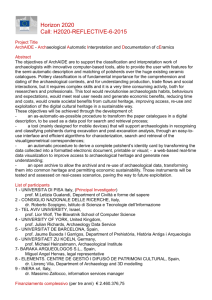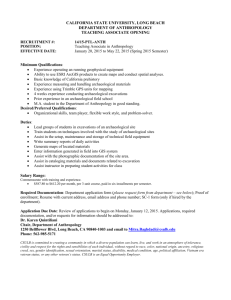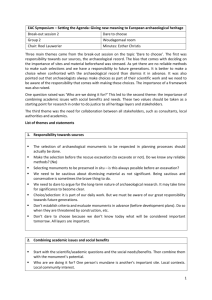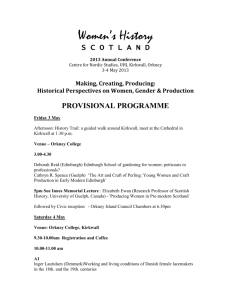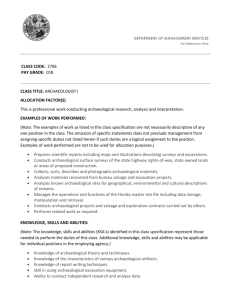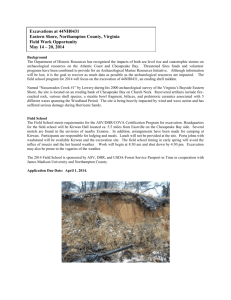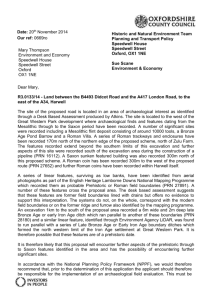Kirkwall THI project outline document
advertisement
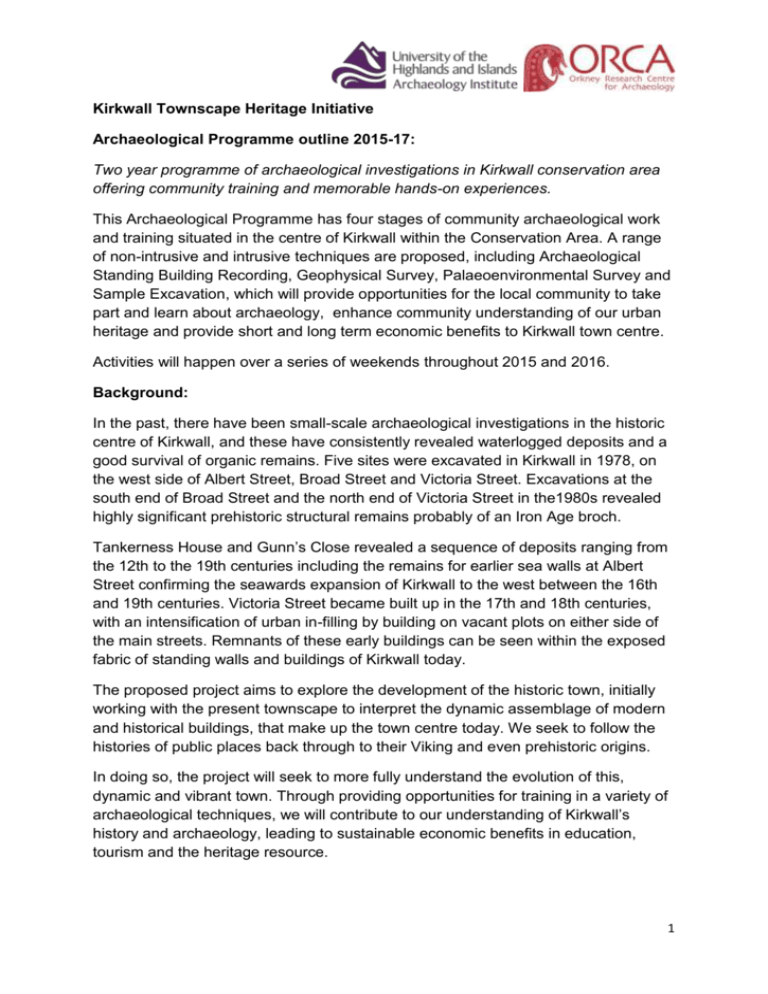
Kirkwall Townscape Heritage Initiative Archaeological Programme outline 2015-17: Two year programme of archaeological investigations in Kirkwall conservation area offering community training and memorable hands-on experiences. This Archaeological Programme has four stages of community archaeological work and training situated in the centre of Kirkwall within the Conservation Area. A range of non-intrusive and intrusive techniques are proposed, including Archaeological Standing Building Recording, Geophysical Survey, Palaeoenvironmental Survey and Sample Excavation, which will provide opportunities for the local community to take part and learn about archaeology, enhance community understanding of our urban heritage and provide short and long term economic benefits to Kirkwall town centre. Activities will happen over a series of weekends throughout 2015 and 2016. Background: In the past, there have been small-scale archaeological investigations in the historic centre of Kirkwall, and these have consistently revealed waterlogged deposits and a good survival of organic remains. Five sites were excavated in Kirkwall in 1978, on the west side of Albert Street, Broad Street and Victoria Street. Excavations at the south end of Broad Street and the north end of Victoria Street in the1980s revealed highly significant prehistoric structural remains probably of an Iron Age broch. Tankerness House and Gunn’s Close revealed a sequence of deposits ranging from the 12th to the 19th centuries including the remains for earlier sea walls at Albert Street confirming the seawards expansion of Kirkwall to the west between the 16th and 19th centuries. Victoria Street became built up in the 17th and 18th centuries, with an intensification of urban in-filling by building on vacant plots on either side of the main streets. Remnants of these early buildings can be seen within the exposed fabric of standing walls and buildings of Kirkwall today. The proposed project aims to explore the development of the historic town, initially working with the present townscape to interpret the dynamic assemblage of modern and historical buildings, that make up the town centre today. We seek to follow the histories of public places back through to their Viking and even prehistoric origins. In doing so, the project will seek to more fully understand the evolution of this, dynamic and vibrant town. Through providing opportunities for training in a variety of archaeological techniques, we will contribute to our understanding of Kirkwall’s history and archaeology, leading to sustainable economic benefits in education, tourism and the heritage resource. 1 Activities: Four main techniques and participatory/training opportunities will be used to investigate Kirkwall’s archaeological heritage above and below ground: 1. Archaeological Standing Building Recording - is widely used throughout the UK to understand the built heritage around us through detailed contextual and material analysis of building construction, alteration and reuse, providing narratives for each building and also contributing to an understanding of the development of the wider urban landscape. Full day hands-on workshops will be run over three weekends to explore and record Kirkwall’s built heritage. 2. Geophysical survey - these non-intrusive techniques allow below ground structural remains and archaeological deposits relating to the development of the town to be assessed and visualised without the need for excavation (e.g. Ground Penetrating Radar, Resistance Survey). This is particularly useful in sensitive areas where excavation may not be possible. Full day hands-on workshops and demonstrations will be held over 2 weekends. 3. Palaeoenvironmental survey – this investigates the past environment and stratigraphy below the town from the sampling of deposits and collection of pollen, charcoal and waterlogged remains from a number of boreholes in the town centre. The aim is to investigate the earlier history of Kirkwall with three full day hands-on workshops. 4. Community Excavations – a number of Garden Digs will be held throughout the conservation area within resident’s gardens to explore the inhabitation of these plots, how people lived, what they throw away and gain a more refined understanding of life in the town through detailed archaeological excavation. A number of small test pits will be excavated in gardens following consent from the householder. To enhance the information gathered and training opportunities from the Garden Digs a single larger excavation will be undertaken within a public space in the town centre where access during the excavations will be completely open to the public. This will include pop-up finds workshops and exhibition tent on-site. 2

